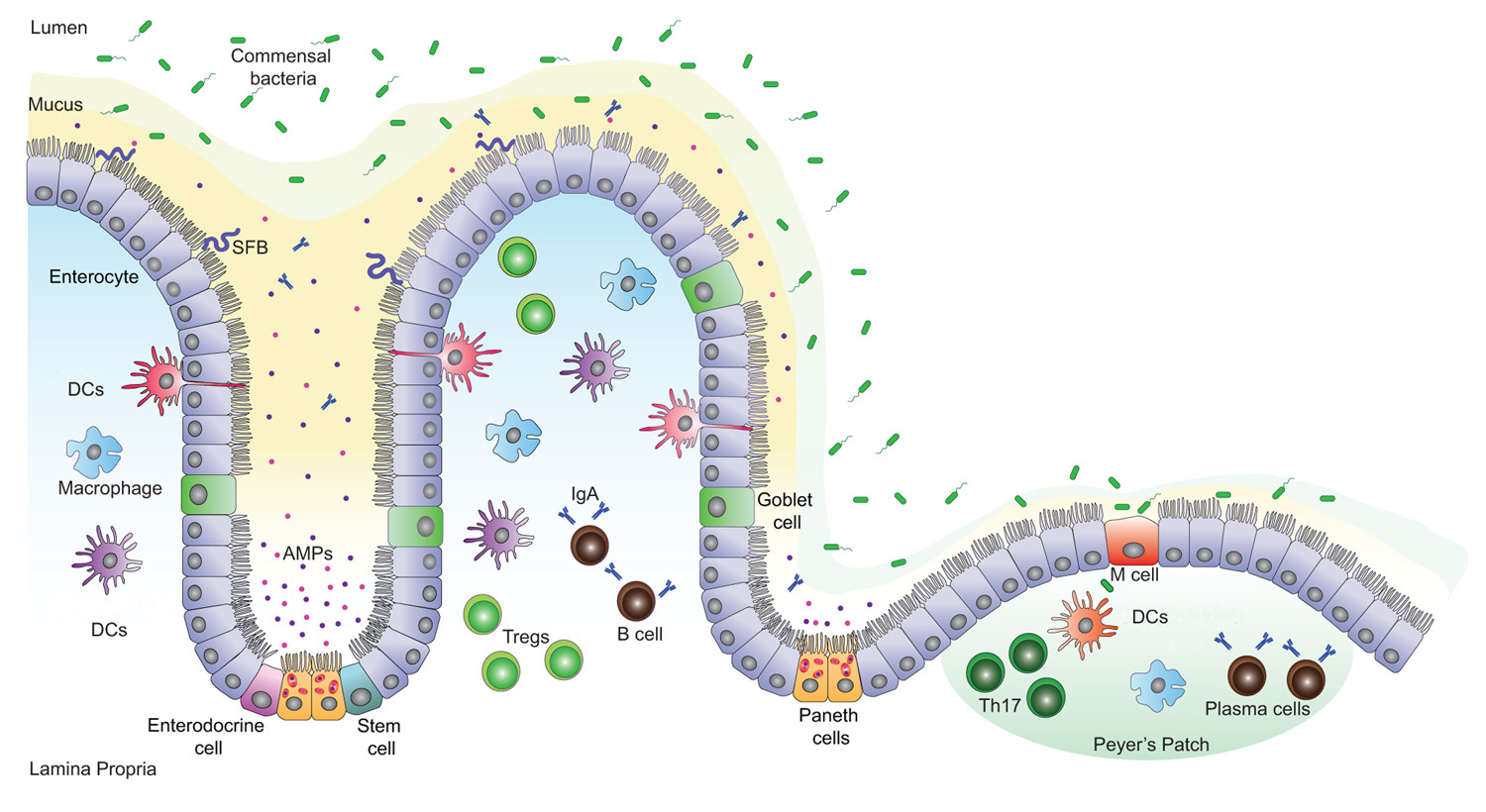The gastrointestinal (GI) tract is constantly exposed to bacteria microflora. However, an excess immune response against the bacterial microflora does not occur in the normal state due to some immunological tolerance underlying the GI immune system. So, disruption of immunological tolerance against intestinal microbial antigens is likely to cause abnormal intestinal inflammation and the development of chronic inflammatory diseases, such as inflammatory bowel diseases (IBC). The epithelial barrier consisted of several essential elements, including an intact epithelial monolayer and tight junction (TJ). The oxidative stress-induced opening of the TJ barrier is a crucial mechanism contributing to the TJ barrier defect. At the same time, fucoidan enhanced intestinal epithelial barrier function and reduced intestinal mucosa and colitis damage.
In this blog, I would like to share how fucoidan helps in decreasing the damage of intestinal mucosa and colitis going through the study of “Fucoidan enhances intestinal barrier function by upregulating the expression of claudin-1” by Atsushi Iraha et. al.
The study examined the protective effect of fucoidan on TJ destruction to use the Caco-2 model (human intestinal epithelial cell line).

The TJ function was evaluated by measuring the transepithelial resistance (TER). Also, the integrity of polarized Caco-2 cell monolayers was determined by measuring the transepithelial resistance (TER), which reflects the tightness of the TJ between epithelial cells (Fig. 1). To indicate the higher the TER is, the higher the TJ function. This method induced TJ’s damage by using hydrogen peroxide (H2O2), which is an oxidative stress inducer. H2O2 only and fucoidan 0.1 mg/mL was added to cells were decreased TER. Alternatively, cells added 1.25 mg/mL of H2O2 and fucoidan did not decrease TER essentially. Thus, fucoidan prevents H2O2-induce destruction of the TJ in a dose-dependent manner.
They examined the effect of fucoidan on the intercellular of claudin-1 that plays the central role of the TJ using immunofluorescence microscopy and added H2O2 and fucoidan to the Caco-2 cell. They observed the cell that added only H2O2, resulting in lower expression of claudin-1, but fucoidan added cell increased expression of claudin-1.

Fucoidan enhanced intestinal epithelial barrier function by upregulating the expression of claudin-1. Thus, fucoidan may be an appropriate therapy for the treatment of inflammatory bowel disease.

The destructive inhibitory effect of TJ was observed under the high dose of fucoidan existence

The observed increase of claudin-1 expression upon addition of fucoidan
